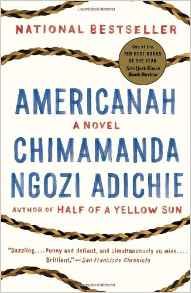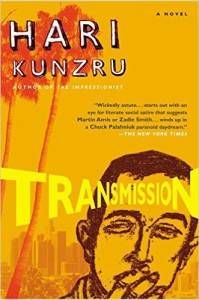
6 Books That Really Get What It’s Like to Work Online
Back when I used to while away my 9-to-5 in a corporate office—all fuzzy cubicle walls and vending machine meals and air conditioning temperatures chilly enough to take off the tip of my nose—I loved reading office novels like Max Barry’s Company and Lauren Weisberger’s Devil Wears Prada and Ed Park’s Personal Days. They made me feel less alone. They made it obvious that someone else understood my misery.
Now that I work from home—rolling out of bed at 8 a.m., co-working with cats, wearing flip-flops and yoga leggings and whatever the hell else I want to wear (don’t hate me)—I enjoy reading a different kind of novel. The kind that perfectly captures the potential and the excitement and the creepiness and the inanity of working primarily on the internet.
1. Sad Desk Salad by Jessica Grose
My most recent “online office” read was Sad Desk Salad. As someone who once worked at an online women’s magazine, I felt Grose perfectly captured the traffic-driven mania of writing for an online audience. Which is no surprise, as Grose herself has worked at both Slate and Jezebel. In this novel, the narrator is a blogger who has stumbled upon the scoop that could secure her writing career. But will she still be able to respect herself if she breaks it?

I love this book for a billion reasons that have nothing to do with the narrator’s identity as a blogger. But I have to admit that the first thing that pulled me in to this story of race and identity and love was the main character, Ifemelu, putting her thoughts out into the world without really knowing what impact they would have.
3. The Circle by Dave Eggers
I am an online writer who is resistant to aggressive social media oversharing. So the thing that was so ominous about this thriller—which follows a newbie at a powerful internet company who comes to push her previously existing limits around personal boundaries, privacy, and the freedom of information—is that it is actually becoming true.
4. The Word Exchange by Alena Graedon
Another thriller that pits digital technology (particularly phone-based gaming) against old-school books, this also left me deeply unsettled.

The narrator of this book is a computer programmer, which I am not. But my husband is a web developer, so I feel as if I have some insight into the non-publishing side of the web. In Transmission, the narrator must grapple with the tediousness of virus testing, questionable decisions, and more.
6. You’re Never Weird on the Internet by Felicia Day
Okay. This last one is a cheat because it’s not a novel. But I couldn’t resist including the memoir of someone who basically lives online (and makes a living at it). In it, Day opens up about social anxiety, impostor syndrome, and one terrible bout of depression. What I was most struck by, however, is how she found a supportive community in online and gaming culture, one in which she was able to thrive.
So what do I read next?











